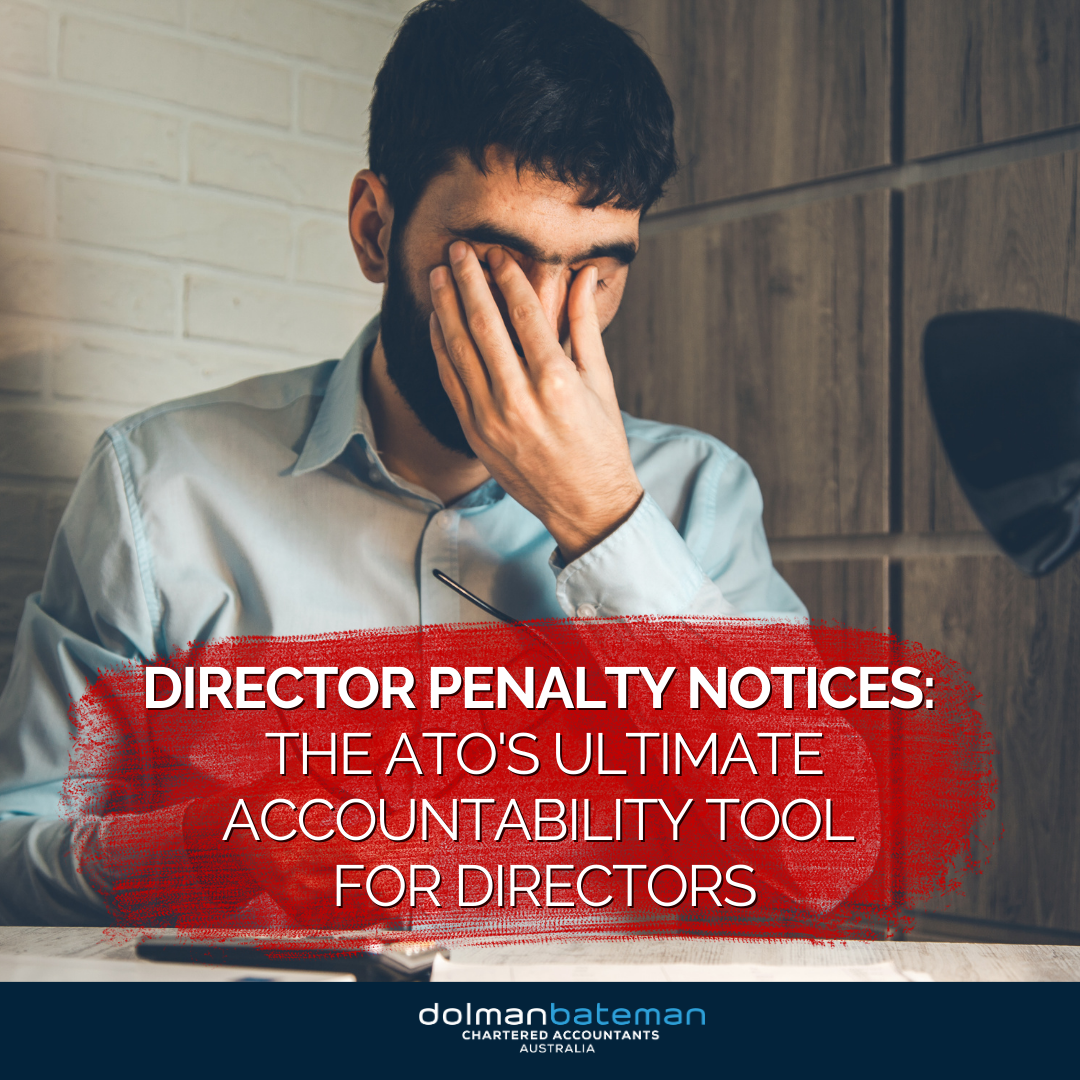Director Penalty Notices: The ATO's Ultimate Accountability Tool for Directors
- Arnold Shields

- Jun 24, 2024
- 3 min read
Updated: May 12, 2025

What Are Director Penalty Notices (DPNs)?
Director Penalty Notices are formal legal documents issued by the Australian Taxation Office (ATO) to company directors, holding them personally liable for unpaid company tax debts. Specifically, DPNs relate to unpaid Pay As You Go (PAYG) withholding and Superannuation Guarantee Charges (SGC).
The ATO uses these notices to enforce compliance, ensuring directors can’t escape liability by simply closing or liquidating a company.
Types of DPNs and What They Mean for You
1. Non-Lockdown DPNs
You’ll receive this type if your company has reported its PAYG or superannuation obligations within three months of the due date, but hasn’t paid them. You have 21 days from the date of the notice to:
Pay the outstanding amount in full, or
Appoint a voluntary administrator, or
Begin winding up the company.
Failing to act within this time means the ATO can pursue you personally.
2. Lockdown DPNs
These are far more serious. A lockdown DPN is issued when the company fails to lodge its BAS or SGC statements within three months of their due dates. In this case, you can’t escape personal liability, not through administration or liquidation. The only way out is to pay the debt in full.
The Consequences of Receiving a DPN
Receiving a DPN is not something you can afford to ignore. Consequences include:
Personal financial liability: You may have to repay company tax debts from your own pocket.
Legal proceedings: The ATO can take legal action, including bankruptcy proceedings.
Credit damage: It could affect your personal credit rating and access to finance.
Business restrictions: You may be barred from managing other companies.
What to Do If You Receive a DPN
Time is critical. Here’s how to respond:
1. Act Fast
Confirm whether it’s a lockdown or non-lockdown DPN. You have 21 days to respond to non-lockdown notices.
2. Seek Professional Help
Consult with an accountant or legal advisor immediately—someone who understands DPNs and can guide you through your obligations.
3. Pay the Debt if Possible
If feasible, pay the debt in full to eliminate the risk of personal liability.
4. Consider Administration or Liquidation
For non-lockdown DPNs, this is a valid pathway to avoid personal liability.
5. Talk to the ATO
The ATO may allow a payment plan, depending on the circumstances. Keeping communication lines open is critical.
How to Prevent a DPN from Landing on Your Desk
Proactivity and sound governance are your best defence. Here’s how:
Report and pay on time: Always submit PAYG and SGC obligations by their due dates—even if you can’t pay in full.
Audit your obligations: Conduct regular reviews of payroll and super to catch issues early.
Get professional advice: Stay up to date on your compliance obligations with help from experienced advisors.
Educate your directors: All board members should understand their personal responsibilities.
Implement financial discipline: Robust cash flow management ensures obligations can be met, even in lean months.
Final Word
Director Penalty Notices are one of the ATO’s most serious compliance tools, and they have real, personal consequences. If you’re a company director, understanding how DPNs work, how to respond to them, and most importantly, how to prevent them, could save you from financial ruin.
Got a DPN or worried about superannuation or PAYG debts? Call Dolman Bateman on 02 9411 5422 today. We’ll help you protect your financial future and keep your company on the right side of the ATO.
Disclaimer:
The information provided in this article is general in nature and does not constitute personal financial, legal or tax advice. While every effort has been made to ensure the accuracy of this content at the time of publication, tax laws and regulations may change, and individual circumstances vary. Dolman Bateman accepts no responsibility or liability for any loss or damage incurred as a result of acting on or relying upon any of the information contained herein. You should seek professional advice tailored to your specific situation before making any financial or tax decision.



